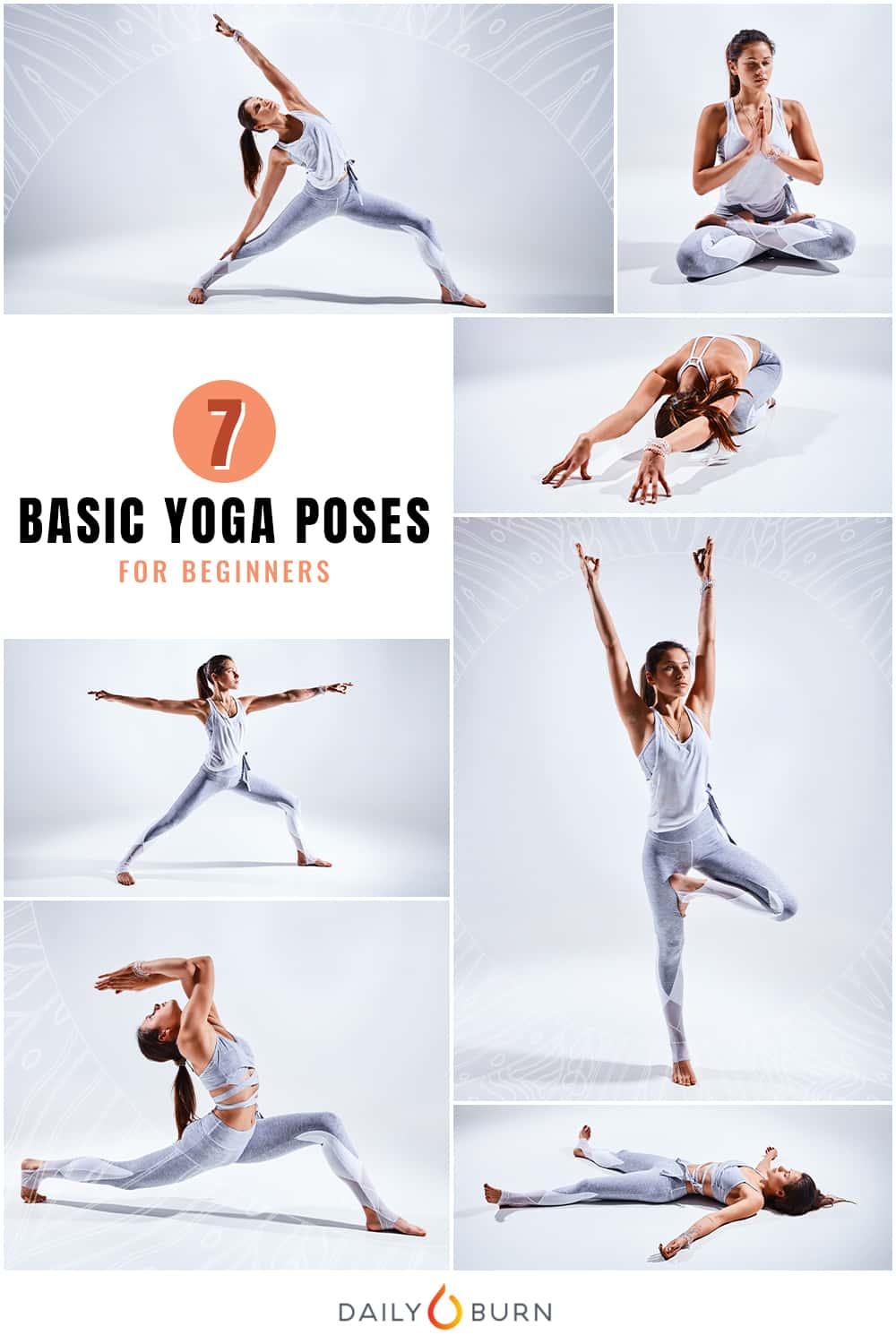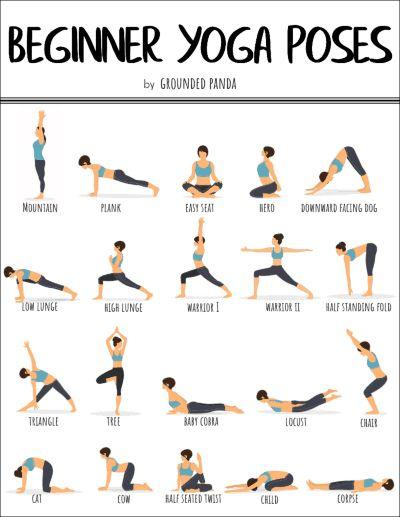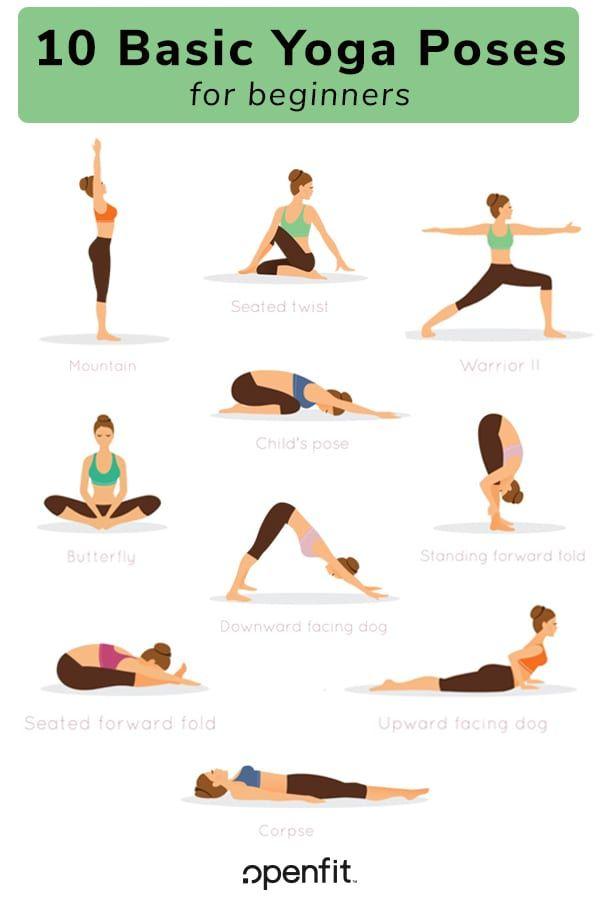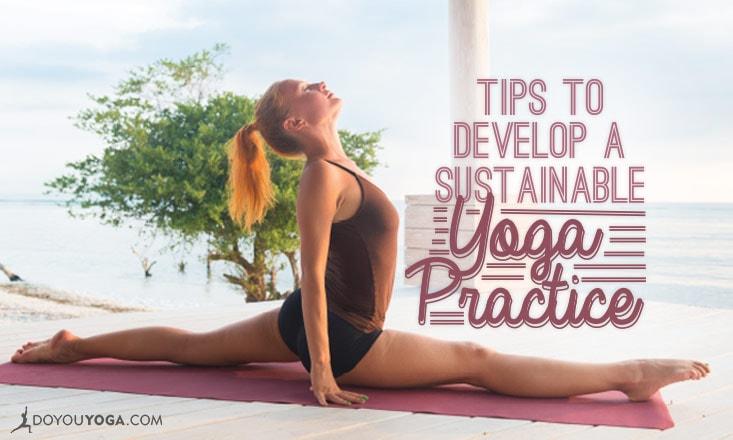Have you ever stepped onto a yoga mat, only to feel overwhelmed by the myriad of poses and all the fancy terminology? You’re definitely not alone. Many beginners find themselves grappling with challenges like tight muscles, balance issues, and the pressure to keep up with more seasoned practitioners. The good news is, yoga is about finding your flow at your own pace, and in this article, we’ll explore some foundational poses specifically designed for beginners. You’ll discover how these simple movements can boost your flexibility, calm your mind, and build confidence on your journey. So, grab your mat, and let’s dive into the world of yoga together; there’s so much transformative potential waiting for you!

Understanding the Importance of Yoga for Beginners
When you first step onto your yoga mat, it may feel like entering a whole new world—one filled with tranquil energy, deep breaths, and the promise of self-discovery. But what really is the allure of yoga for those just starting out? Imagine waking up each day with a little more ease in your body and clarity in your mind. Research has shown that even beginners can tap into these benefits quickly: a study published in The Journal of Clinical Psychology revealed significant reductions in stress and anxiety levels among new practitioners. So, take a moment to reflect: how might your life be different with just a few moments of mindful stretching and breathing each day?
Perhaps you’ve heard that yoga is only for the flexible or the fit, but let’s challenge that notion. Yoga is not about bending into pretzel shapes; it’s about building a lasting connection between your mind and body. One popular pose for beginners, Child’s Pose (Balasana), isn’t just about resting; it’s an opportunity to listen inward, allowing yourself to be grounded and present without judgment. Start by discovering how each pose feels in your body rather than worrying about achieving perfection. With every gentle stretch, you’ll gain insight into your own physical capabilities, and the practice will evolve uniquely for you.
As you dive deeper, consider incorporating some simple daily practices that can enhance your journey. Here are a few actionable steps you can easily integrate:
- Start small: Dedicate just 5-10 minutes each morning for basics like Mountain Pose or Cat-Cow. This sets a positive tone for the day.
- Stay curious: Try different styles of yoga—like Vinyasa, Hatha, or restorative—to find what resonates with you.
- Connect with a community: Whether it’s an online class or a local studio, sharing your experience with others can greatly enrich your practice.
By embracing these practices, you’ll not only be building physical strength but also cultivating a deeper awareness of your emotional and mental well-being. This holistic approach makes each session an adventure of self-exploration, unlocking layers of understanding you might not have realized existed.

Essential Yoga Poses to Start Your Journey
When embarking on your yoga journey, starting with the right poses can set the tone for your entire practice. Mountain Pose is often the first posture featured in many yoga classes, and for good reason. It might look deceptively simple, yet standing tall with your feet rooted into the ground can instill a profound sense of stability and presence. As you breathe deeply, you cultivate awareness of your body and surroundings—an essential foundation for any practice. Have you ever tried standing still and simply observing your breath? It’s a powerful reminder that sometimes, the deepest insights come from moments of stillness.
Next, let’s explore Downward-Facing Dog, a pose that’s both energizing and grounding. Picture this: you start on all fours, then lift your hips high, creating an inverted V with your body. This pose serves as a gentle stretch for your spine while strengthening your arms and legs. Many beginners shy away from it, thinking it’s too challenging, but try to focus on how your body feels rather than the struggle itself. Did you know that a study from the American Journal of Preventive Medicine highlights yoga’s role in reducing stress and improving mental well-being? So, as you master Downward Dog, remember you’re not just building strength; you’re nurturing your mental health, too!
let’s dive into Child’s Pose, a sanctuary of comfort that many seasoned yogis love to return to as well. As you sink into this position, allow your forehead to rest gently on the mat, and feel the world melt away. It’s an invitation to reconnect with your breath and listen to your body’s needs. Child’s Pose serves as a reminder that rest is just as vital as effort in your practice. In modern life filled with constant busyness, consider this: Are you giving yourself enough time to recharge? Embracing poses like these truly fosters a more balanced lifestyle, inviting both challenge and peace into your routine.

Tips for Mastering Your First Yoga Class
Walking into your first yoga class can feel a bit like stepping onto an alien planet. Everyone seems to be in perfect sync with their breath, gracefully transitioning between poses while you might still be figuring out how to unzip your mat. First things first: remember, it’s completely normal to feel a bit lost. One useful tip is to arrive early; this gives you a chance to familiarize yourself with the studio’s layout and meet the instructor. Introduce yourself and express your beginner status—most teachers are more than happy to offer modifications for any poses that might feel intimidating. It’s all about creating a supportive environment, and you might find that sharing your nerves immediately eases them.
As you flow through the class, listen to your body and honor your limits. Many beginners fall prey to the misconception that yoga is about achieving the perfect pose rather than connecting with oneself. Remember that flexibility and strength come with time and practice, not in a single session. Consider focusing on your breath as the true anchor to your practice. Deepening your inhales and exhales can transform your experience, making even the most challenging poses feel a bit more manageable. If an instructor says to hold a pose longer than you’re comfortable, don’t hesitate to come out of it; the goal is to cultivate awareness, not just to execute a pose to perfection.
don’t forget to cultivate a sense of self-compassion. Your yoga journey is not a race, and every practitioner—no matter their experience—was once a beginner. Feeling awkward or out of place is part of the growth process. Perhaps consider journaling your experiences after class to reflect on what felt good or challenging. This practice not only helps solidify lessons learned but can also illuminate your personal evolution over time. For additional insights, explore resources like the Yoga Journal, which offers valuable tips and articles specifically geared towards newcomers. Your first yoga class is just the beginning of an extraordinary journey; embrace the ride!

Common Mistakes to Avoid as a Yoga Newbie
Starting your journey with yoga can feel like stepping onto a stage for the first time—exciting, yet a bit intimidating. One common pitfall, especially for beginners, is rushing into advanced poses. It’s tempting to want to master that impressive headstand or the graceful warrior pose, but the beauty of yoga lies in its foundation. Instead of skipping the basics, focus on mastering simple postures like Mountain Pose and Child’s Pose. These foundational poses not only build essential strength and flexibility but also help you develop body awareness. Remember, yoga is a personal journey. There’s no rush; embrace the process!
Another mistake many newbies make is comparing themselves to others in class. Have you ever looked around during a session and felt disheartened because someone else seems effortlessly flexible? It’s crucial to understand that everyone’s body is different, and so is their yoga journey. Instead of judging your progress against someone else’s, reflect on your own growth. Try keeping a yoga journal where you track your experiences and feelings after each session. This practice can help you appreciate the small victories, like holding a pose longer or feeling more relaxed after practice. Plus, circling back to your entries can provide insight into how far you’ve come!
Lastly, don’t underestimate the power of focusing on your breath. In the beginning, it’s common to get lost in the rhythm of the poses and forget the fundamental principle of yoga: breath awareness. Deep, intentional breathing anchors your practice and maximizes the benefits of each posture. Inhale confidence, exhale tension! Want to deepen this practice? Consider exploring resources like the Yoga Journal’s guide on breath techniques. Practicing breath awareness not only enhances your flexibility and strength but also fosters a deeper connection between your mind and body. So, take a moment at the start of each class to center yourself, and let your breath be your guide.

Creating a Sustainable Yoga Practice at Home
Creating a yoga sanctuary in your home is more than just rolling out a mat; it’s about fostering an environment that encourages growth, resilience, and self-awareness. Think about your space: what vibes does it emit? Surround yourself with objects that inspire you—perhaps a plant that reminds you of nature or a soft blanket that invites comfort after a session. Consider dimming the lights or using candles to transform the room into a soothing retreat. Remember, setting the scene can significantly enhance your practice. It’s that little touch that whispers, “This is your time.”
Don’t be afraid to experiment with your practice. While there are traditional poses that every beginner should know, such as Downward Dog or Child’s Pose, find ways to personalize them to your body and mood. You might discover that bringing your knees closer together or bending your elbows slightly changes everything. This adaptability reflects the true spirit of yoga, where the journey is uniquely yours. Ask yourself: how can you alter a pose to better connect with your breath? Allowing yourself this flexibility is not only empowering but also encourages deeper mindfulness in your practice.
Lastly, consider integrating a meditation component to your sessions. Studies, such as those published by Harvard Health, reveal that even a few minutes of mindfulness can reduce stress and improve overall well-being. Try setting aside just five minutes at the end of your practice to sit in stillness. Focus on your breath, observe your thoughts, and release them without judgment. Over time, you’ll find that this daily ritual cultivates a garden of peace within you. In the hustle of daily life, creating a sustainable practice at home can serve as your anchor, reminding you that calmness is always within reach.
A Few Last Words
As you embark on your journey into the world of yoga, remember that every pose is a step toward greater awareness, relaxation, and balance, both on and off the mat. Whether you’re stretching into downward dog or finding your center in mountain pose, these foundational movements allow you not only to build strength and flexibility but also to connect more deeply with yourself. So why not roll out your mat tonight and give a few poses a try? Just a few minutes of practice can make a world of difference in how you feel. We’d love to hear about your experiences! Have you felt any shifts in your mindset or physical well-being since you started? Sharing your story may inspire others, too. Embrace each practice with an open heart, and remember, every great yogi started right where you are now. You’ve got this!





